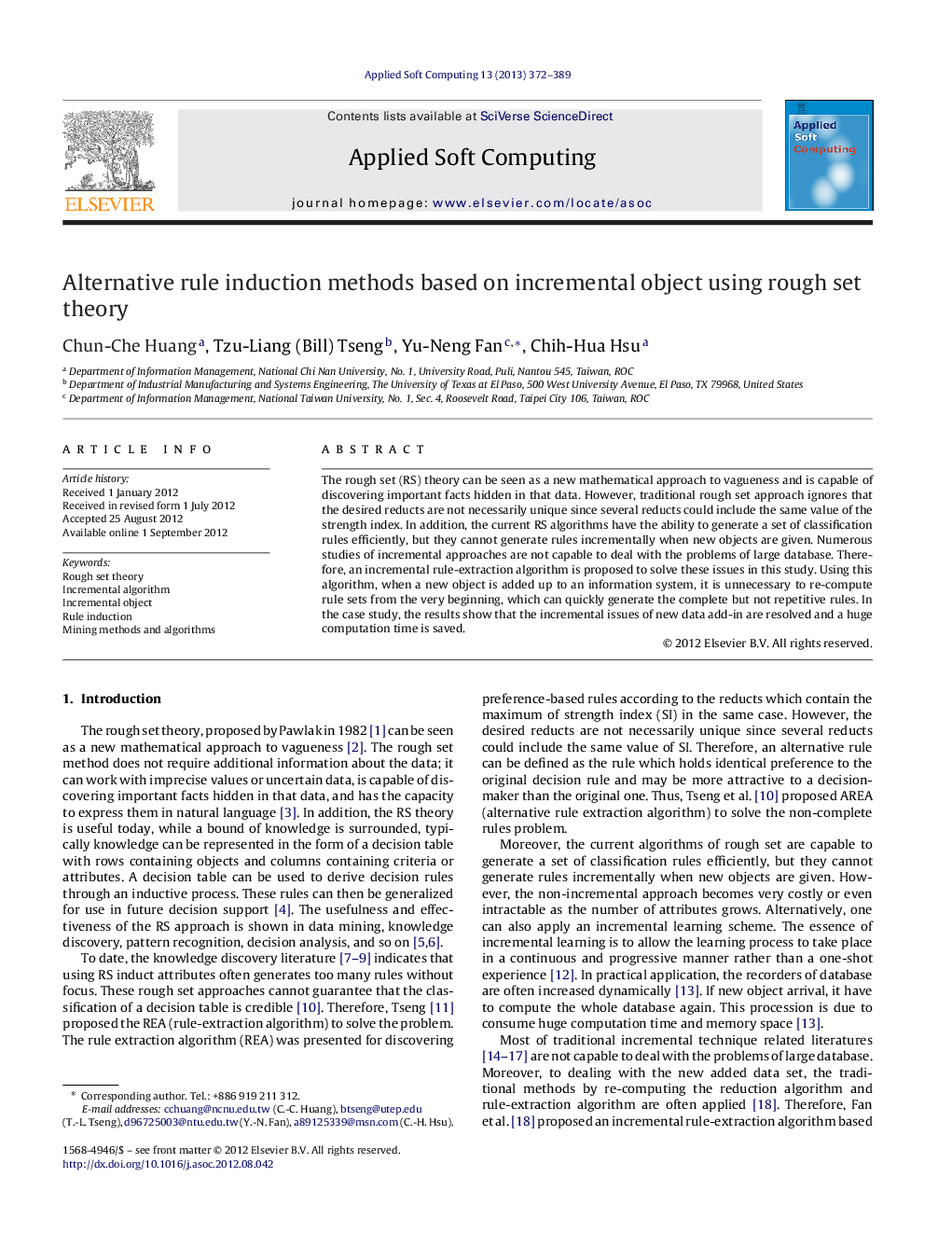| Article ID | Journal | Published Year | Pages | File Type |
|---|---|---|---|---|
| 495615 | Applied Soft Computing | 2013 | 18 Pages |
The rough set (RS) theory can be seen as a new mathematical approach to vagueness and is capable of discovering important facts hidden in that data. However, traditional rough set approach ignores that the desired reducts are not necessarily unique since several reducts could include the same value of the strength index. In addition, the current RS algorithms have the ability to generate a set of classification rules efficiently, but they cannot generate rules incrementally when new objects are given. Numerous studies of incremental approaches are not capable to deal with the problems of large database. Therefore, an incremental rule-extraction algorithm is proposed to solve these issues in this study. Using this algorithm, when a new object is added up to an information system, it is unnecessary to re-compute rule sets from the very beginning, which can quickly generate the complete but not repetitive rules. In the case study, the results show that the incremental issues of new data add-in are resolved and a huge computation time is saved.
Graphical abstractFigure optionsDownload full-size imageDownload as PowerPoint slideHighlights► When a new data is added up, the proposed AREA can update rule sets by modifying partial original rule sets. ► It is unnecessary to re-compute rule sets from the very beginning by employing the AREA. Thus the computation time is decreased. ► The AREA can select more than one of the maximum SI. Therefore, the non-complete rules problem is solved. ► Because the AREA may generate repetitive rules, the algorithm is developed to exclude these repetitive rules in the solution search procedure.
